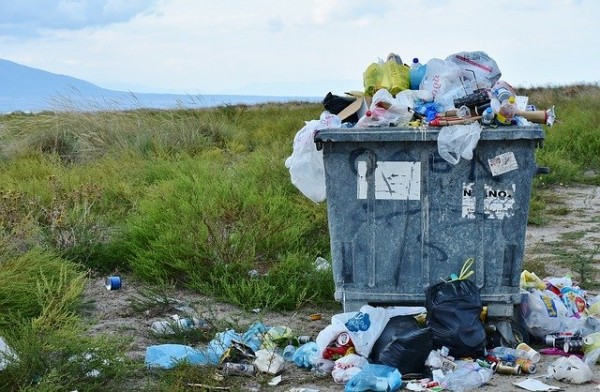By Telegiz , | March 27, 2020
- PREV
- Image1of0
- NEXT

Like Us on Facebook
The world has been displaying alarming signs that the pollution level today is undeniably higher than the norm. Luckily, a certain bacterium has been recently found by scientists that can feed on toxic plastic. This bug does not only break down the plastic but also eats it.
The discovery of this bacteria
The recently found bacterium was discovered at a waste site wherein piles of plastics dumped. This bacteria so far is the first that is identified to attack polyurethane. There are millions of tons of plastic being produced every year for general items such as shoes, nappies, foam insulation, kitchen sponges, and many more, but these plastics are oftentimes sent to a landfill due to them being too tough to recycle.
When this plastic is broken down, toxic and other carcinogenic chemicals can be released that would kill most bacteria, which is why the recent bacteria discovered stands out due to its ability to survive! Research is ongoing to be able to understand more about this bug and its characteristics. However, there is still work that remains to be done before this bacteria can be fully utilized.
According to Hermann Heipieper who is included in the research team at the Helmholtz Centre for Environmental Research-UFQZ located in Leipzig, Germany, "These findings represent an important step in being able to reuse hard-to-recycle polyurethane products," following with an explanation that it might take 10 years before this bacterium could be utilized at a larger scale.
In the meantime, Herman still suggests that human beings manage the number of plastics in the environment and apply proper recycling in order to reduce the pollution level today.
The plastic situation today
The amount of plastic produced since the 1950s amounts to 8 billion tons and has been one of the major contributors to the pollution level today by filling up oceans, landfills, and other locations where they are thrown around. According to scientists, the situation is "near-permanent contamination of the natural environment."
The journal Frontiers in Microbiology has just recently published research that has identified a new strain of this Pseudomonas bacteria that is a family known for its capability of surviving harsh conditions that involve extreme heat and acid.
The previous studies in comparison
Previously, Fungi has been the focus as it can break down the polyurethane, but it seems that bacteria are more practical and also easier to harness for industrial purposes. According to Heipieper, the next step could involve identifying the genetic code for the enzymes which the bug produces to understand how to break down the polyurethane efficiently.
In 2018, scientists revealed that they had accidentally created an enzyme capable of breaking down plastic bottles made of polyethylene terephthalate (PET) and potentially enabling the whole recycling of these bottles for the very first time, which could potentially decrease the pollution level today.
It is previously known that aside from Fungi that can break down PET plastic, there are also wax moth larvae that are usually bred as fish bait that can eat polythene bags.
-
Use of Coronavirus Pandemic Drones Raises Privacy Concerns: Drones Spread Fear, Local Officials Say

-
Coronavirus Hampers The Delivery Of Lockheed Martin F-35 Stealth Fighters For 2020

-
Instagram Speeds Up Plans to Add Account Memorialization Feature Due to COVID-19 Deaths

-
NASA: Perseverance Plans to Bring 'Mars Rock' to Earth in 2031

-
600 Dead And 3,000 In The Hospital as Iranians Believed Drinking High-Concentrations of Alcohol Can Cure The Coronavirus

-
600 Dead And 3,000 In The Hospital as Iranians Believed Drinking High-Concentrations of Alcohol Can Cure The Coronavirus

-
COVID-19: Doctors, Nurses Use Virtual Reality to Learn New Skills in Treating Coronavirus Patients







